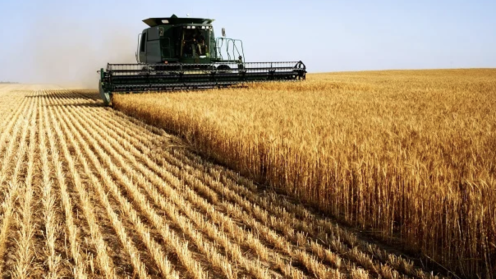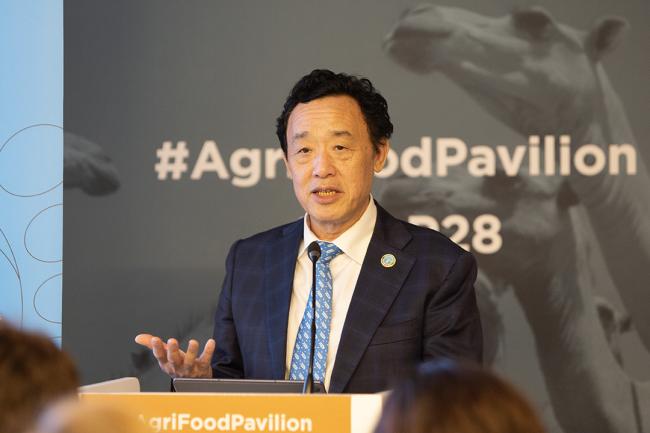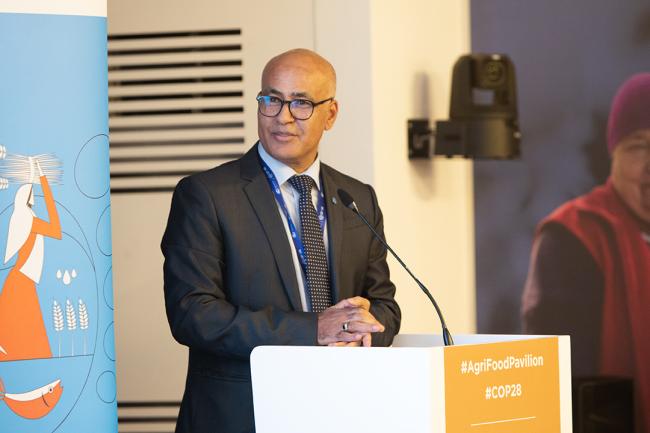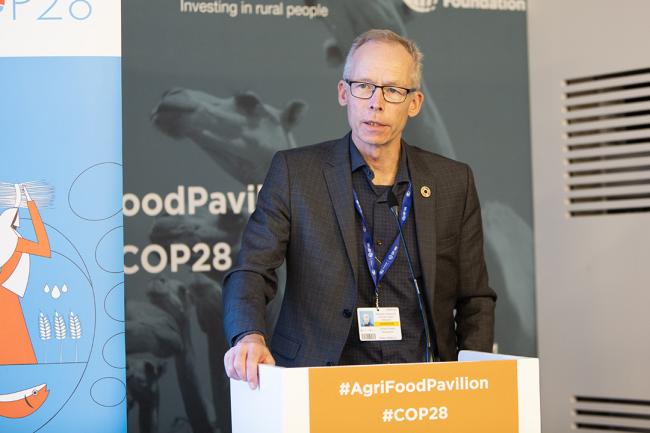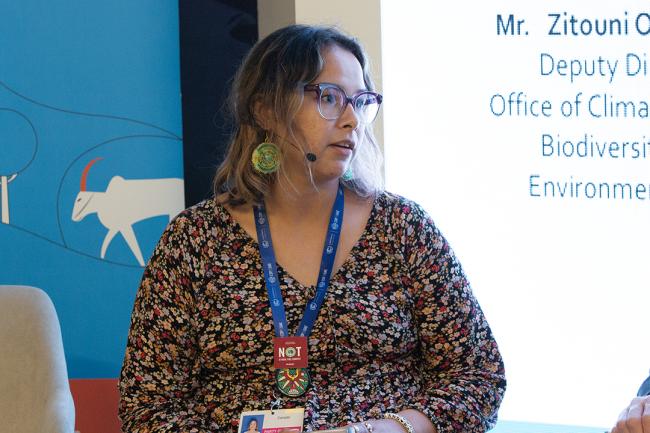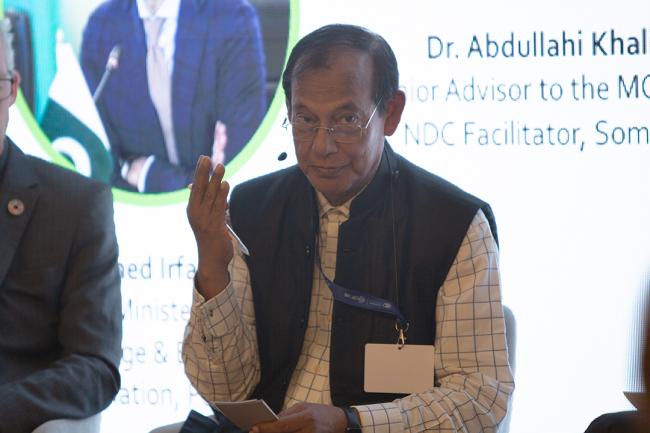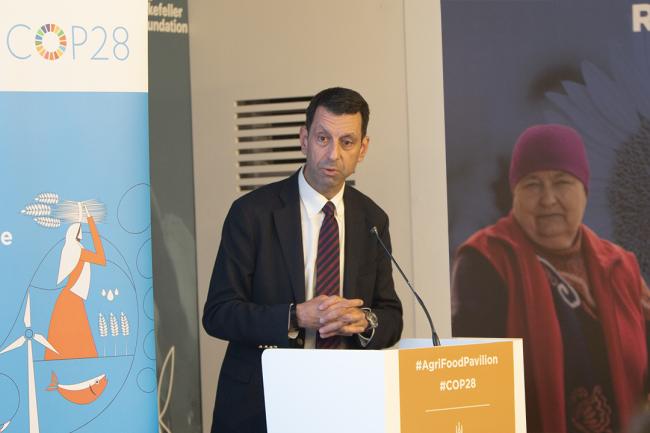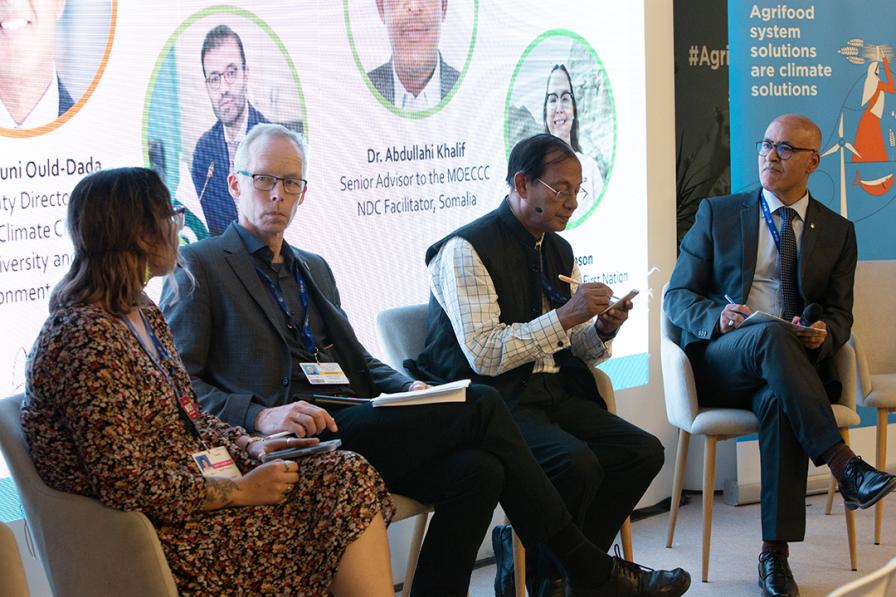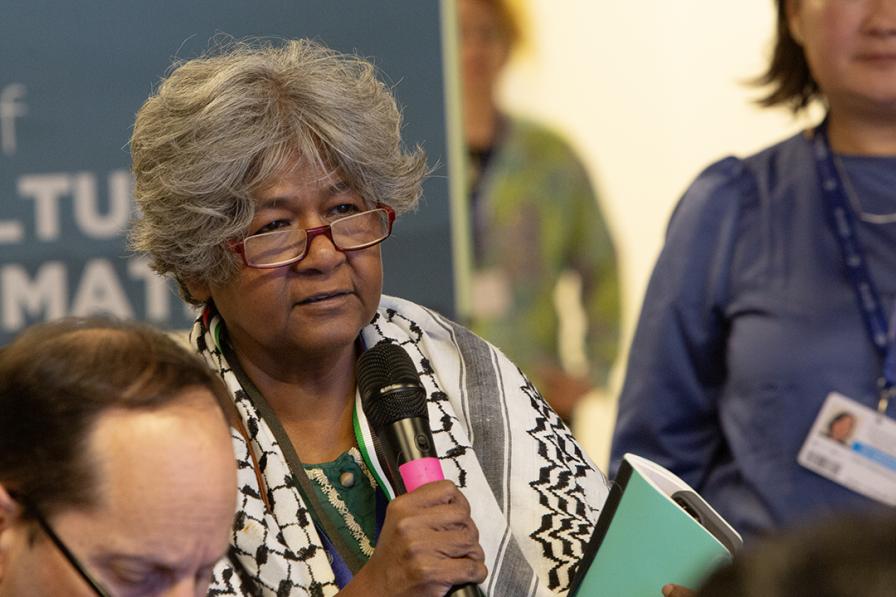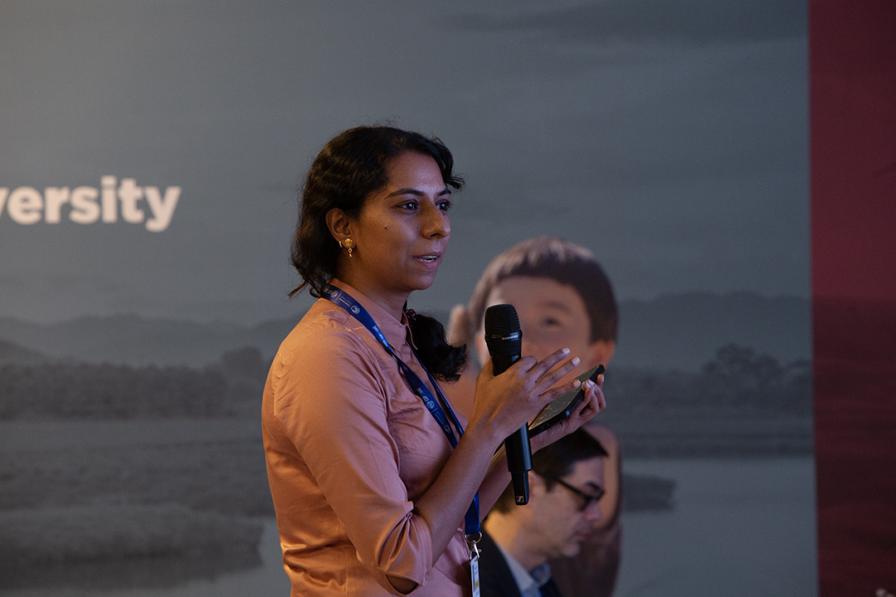Summary
On the heels of the COP 28 decision to operationalize the loss and damage fund, a new report highlights the pressing need to measure and counter the intensifying effects of climate change on the world’s agrifood systems. Panelists stressed giving voice to those most affected by climate-fueled disasters and finding the finance and tech to help them.
Loss and Damage in Agrifood Systems: Addressing Gaps and Challenges
Increasing extreme weather events, shifting precipitation patterns, and other climate-related challenges are a major threat to agricultural productivity and food security. Though operationalization of the loss and damage fund at COP 28 is an important step, it is critical to ensure that funding addresses family farmers, herders, fishers and fish farmers, forest dwellers, food workers and their families who are on the frontline of the climate crisis. At this Food and Agriculture Organization (FAO) event, scientists, representatives of Indigenous Peoples, and FAO officials highlighted agriculture as the primary sector impacted by loss and damage due to climate change-related events.
In his opening remarks, QU Dongyu, FAO Director General, welcomed the rapid move to operationalize the loss and damage fund while emphasizing the need for: technological advances to produce more with less; increased investment to reach those most vulnerable to climate change; and innovations in information management to measure loss and damage and build efficiency in agrifood systems. He underscored the need to upgrade our farming systems to produce more with less, and with less negative impact on the environment. “That is our real, common mission,” he underscored, adding that FAO’s technological expertise can help achieve these goals.
Zitouni Ould-Dada, FAO, introduced the organization’s new report, Loss and Damage in Agrifood Systems: Addressing Gaps and Challenges, which highlights the need for improved methodologies to track loss and damage, increase investment in data collection, and step up financing. The report he noted indicates that the sector is losing, on average, USD 123 billion per year due to disaster events, but that data specifically on climate-related loss and damage is “scant or non-existent.”
Johan Rockström, Director of the Potsdam Institute for Climate Impact Research, spoke on the scientific evidence on the relationship between agrifood systems and loss and damage. He noted that much more progress is needed to improve methodologies that can directly attribute losses to climate change at local and global scales. Rockström underscored that the agreement on the loss and damage fund also highlights the need for mitigation of greenhouse gases, adding that the world is running out of its carbon budget. He also expressed alarm that the world is moving toward a 3°C increase in average temperature, and that the costs of a 3°C world, factoring all loss and damage, would be infinite. This, he said, would entail a social collapse at the scale of billions of people.
Rockström also called for increased data collection and measurement focused not only on direct impacts, but also on “deep impacts” of climate change, such as when climate-related hardships prompt families to pull children from schools, often never to return. He urged for providing a space for Indigenous Peoples to be heard, noting gaps in data to track loss of capacity for nations and communities.
Sara Hanson, a Youth, Indigenous Peoples, and First Nations representative, pointed to the inability of Indigenous Peoples in Canada to access the loss and damage fund because they live in a developed country. She noted their food systems have been impacted by the effects of climate change since the time of colonization.
Mizan R. Khan, International Centre for Climate Change and Development, highlighted slow-onset events, such as increasing water salinity and drought, which often become more prominent as their effects reverberate across economic sectors. He stressed the need to improve: generation of data so that specific losses can be linked to climate change; climate information services so that farmers and others understand climate impacts; and capacity building at the individual and institutional levels. Khan concluded that, science knowledge and Indigenous knowledge need to be bridged, adding that farmers have wisdom that scientists lack.
Participants asked questions about the difficulty of harmonizing data sources and measuring the experiences of rural people, such as women in Pakistan picking cotton in fields flooded with industrial waste. Rockström emphasized the importance of data harmonization to connect the local to the global and the importance of not only the loss and damage fund, but also compensation and support through existing institutions and systems on the ground. Hanson urged a place at the table for Indigenous Peoples who are rights holders that must be recognized in policymaking, including the allocation of the loss and damage fund.
Organizers: FAO
Contact:
Makie Yoshida | Makie.Yoshida@fao.org,
Inkar Kadyrzhanova | Inkar.Kadyrzhanova@fao.org
For more information: https://www.fao.org/
To receive free coverage of global environmental events delivered to your inbox, subscribe to the ENB Update newsletter.
All ENB photos are free to use with attribution. For this COP 28 side event, please use: Photo by IISD/ENB | Angeles Estrada Vigil
